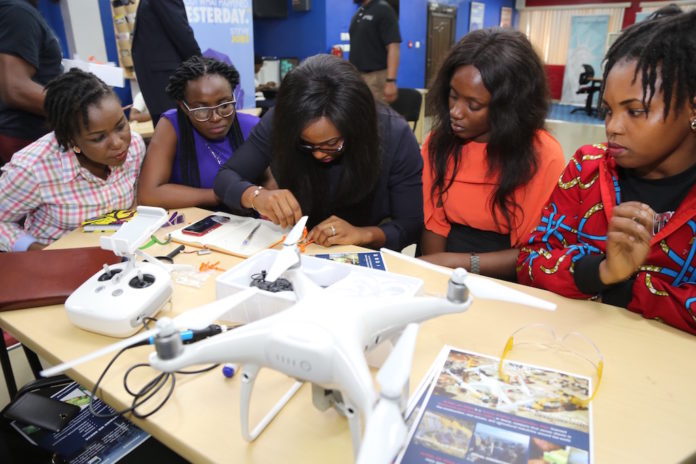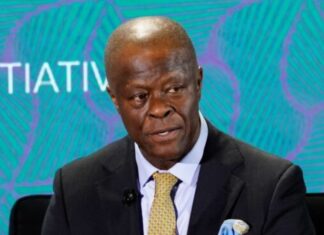By Jeph Ajobaju, Chief Copy Editor
This year holds promise of $1 billion Chinese tech investment in Africa – especially in Nigeria, Kenya, Egypt, and South Africa – to top up the $400 million invested in the second half of 2019 alone.
Fintech is the driving force; it receives the largest share of funding.
African fintech building financial services products and infrastructure are a big draw for Silicon Valley venture capitalists as well as for international finance institutions and global payments giants.
Opera, the payments service operating in Nigeria, raised an unprecedented $170 million in two rounds last year, led mainly by Chinese investors. Opera wants to build a super app ecosystem similar to WeChat in China.
Chinese conventional tech firms, particularly in fintech and handsets, led the pack last year, but 2020 promises more diverse Chinese private investment in Africa, according to Quartz Africa.
Backing up the investment drive is “Starboard” or “Science and Technology Board”, China’s stock exchange that operates like NASDAQ in the United States.
Starboard was where Africa’s top mobile phone seller, Transsion, raised $400 million in its IPO in September 2019.
Some of the new Chinese tech firms approved for Starboard listing prioritise Africa in 2020. The focus in their IPO prospectuses include biochemicals and biotechnology.
Zhejiang Dongfang Gene Biological Products, approved for listing on December 31, 2019, makes “rapid test equipment” and highlights “high incidences of tropical diseases” such as malaria and dengue fever, which make Africa a viable market.
Artificial intelligence-driven facial and speech recognition companies also plan to get into Africa’s tech sector this decade.
Much of the current AI-driven tech in Africa was sold from (semi) private Chinese tech companies to African governments (for example Zimbabwe’s deal with Cloudwalk).
Speechocean, based in Beijing, specialises in training voice recognition software for some of the biggest tech companies and is keen to expand into African languages.
Speechocean is best known for using high-quality cell phones to collect voice samples, paying per word recorded. The method may be transferable to African countries with high unemployment and high mobile phone penetration.
Reports on funding
Three reports on African startups show different funding totals for 2019. But Partech Ventures, WeeTracker, and Briter Bridges all report funding totals of over $1 billion.
The big picture is the dominance of Nigeria and Kenya, the rise of fintech, and the reinforcement of Chinese players.
The differences in funding totals arise from methodology used. Partech includes publicly undisclosed deals while WeeTracker only covers undisclosed rounds in the number of deals rather than their value.
“A great deal of the total funding value depends on how you define a startup in the report. [It] also hinges on what we include in the data,” said Nayantara Jha, co-founder of WeeTracker.
“If the definitions vary, the numbers will always vary,” she told Quartz Africa.
One way to ensure funding clarity is for investment disclosures to be more transparent, added Tidjane Dème, Partech general partner.
“Our ecosystems may really need a lot more seed funds but investors need data to understand where the market is – and that data can be hard to come by. Ultimately, the whole market benefits from more transparency.”
Despite the differences, Partech, WeeTracker, and Briter Bridges all report that African tech ecosystems have crossed the billion-dollar threshold in annual funding.
All the reports put Nigeria, Kenya, Egypt, and South Africa in the top five of investment destinations.
While investor appetite is expected to hold and possibly increase, Maxime Bayen, a venture fund analyst who supplied data to the Briter Bridges report, expects more activity outside the dominant investment destinations.
“Ecosystems like Ghana, Tanzania, Uganda in Anglophone Africa; and like Senegal, Cote d’Ivoire or Cameroon in Francophone Africa; should produce increasingly successful startups emerging on the regional scene,” he explained.
“I’d say those new markets are a few years behind Nigeria and Kenya, so their ecosystems are now reaching the maturity where Kenya and Nigeria were four or five years ago.”
The prediction could come to pass because there is now “a larger and stable pool of investors focused on Africa” with more investors doing multiple deals consistently in contrast to three years ago, Dème added.
“The first time we published our report, we counted 220 individual investors who had participated in rounds in Africa but only 12 had done more than one deal.
“Back then, it was a diverse pool of investors with most of them just testing the waters in Africa.”
As existing investors are increasing stake in African startups, newer players are also entering the market. Last year, more than 20 Africa-focused funds set up shop.
However, a report by Partech says the focus on local ecosystems and companies will begin to shift “towards an analysis of value creation and outcomes for investors” as investment sums increase.
In April 2019, Jumia, the largest e-commerce operator on the continent, launched an IPO on the New York Stock Exchange. Interswitch, Africa’s first fintech unicorn, is also expected to go public this year.
But “statistically,” Deme warns, “IPOs are still a fluke because it doesn’t happen so often. It’s the thing that everyone dreams of but we should put it aside for the moment.”
Mergers may become more common as companies consolidate resources to pursue scale. But most founders will have to offer investor returns by building companies that become profitable or grow large enough to be acquired.
Deme expressed optimism that African startups still promise significant enough upside to attract funding to power growth.
“The next few years will be a test of whether there is liquidity in buying and selling [African] startups. This is the next phase for the ecosystem to prove to be really out of the woods.”















